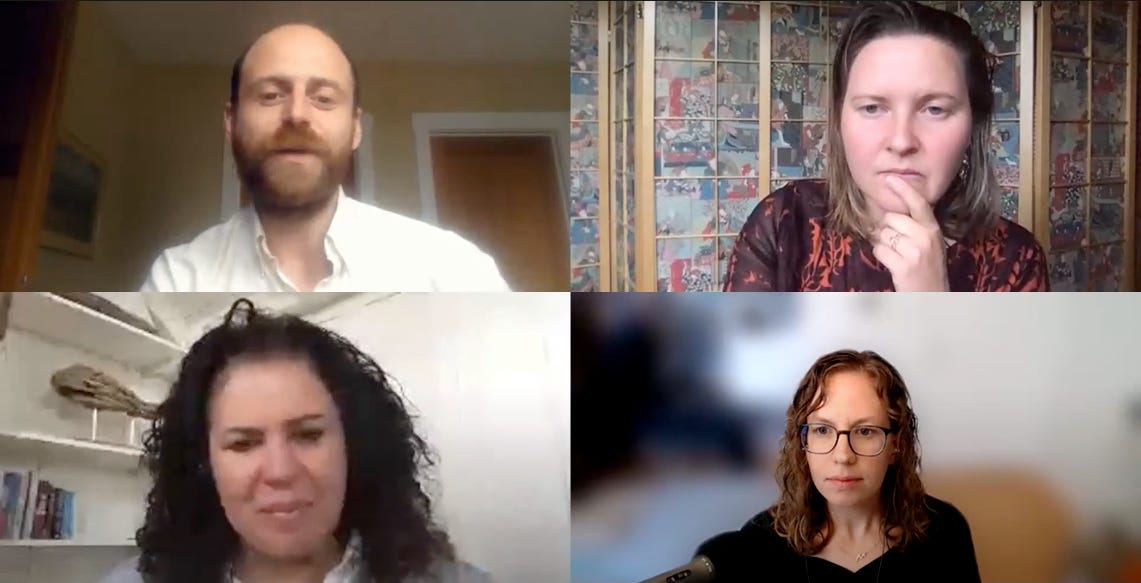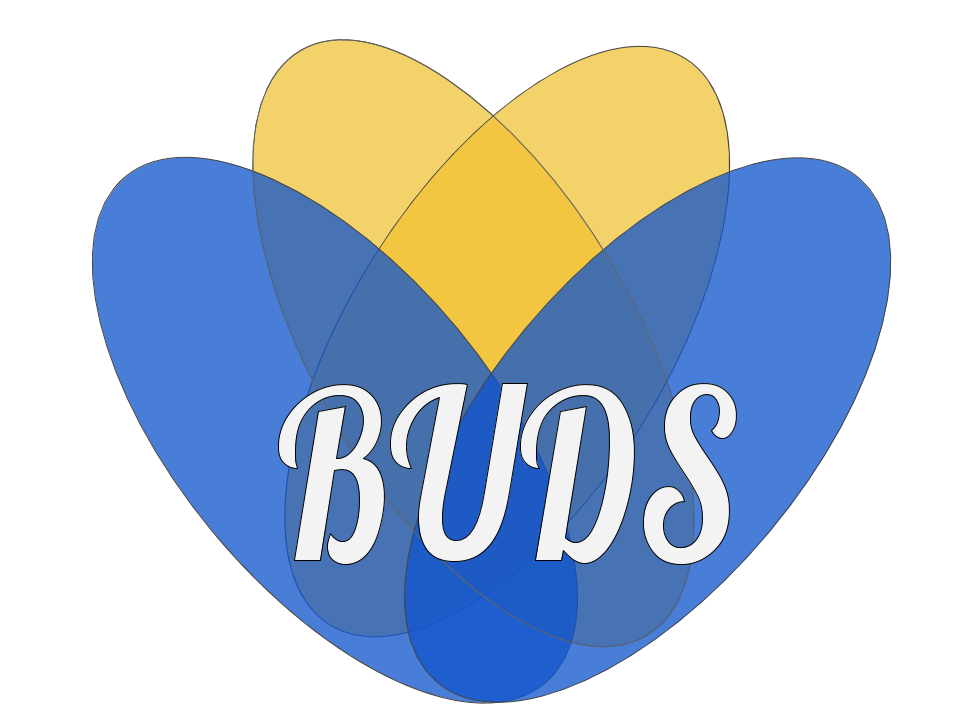2020 National Workshop on Data Science Education
An unprecedented, yet successful new format
"What we tried to do this year was not just have a program to show what Berkeley's doing, but to organize panels so we could hear what others are doing," - Eric Van Dusen (Interim Director of the Data Science Education Program)
The third annual National Workshop on Data Science Education (NWDSE) was a great success, prompting many a ‘virtual clap’ 👏 with its record-number 500 plus registered participants from more than 300 unique institutions.
As Dr. Van Dusen stated, CDSS (Division of Computing, Data Science, and Society) at Berkeley is expanding the workshop’s vision of facilitating Data Science pedagogy outreach. This is especially true as more universities are beginning to adopt Data 8, and as the field of Data Science rapidly penetrates into more of the professional world.
This year’s evolved format included sets of pre-recorded talks, open faculty and student staff office hours, various panels, and multiple discussions. Although the panelists and participants were not able to meet in person this summer, organizers were able to greatly expand workshop attendance this year. The diverse range of panels and lightning talks was a huge draw to the attendees!
At the ‘Data 8 Adopters’ panel, professors from Boise State, UIUC, Wentworth Institute of Technology, University of Maryland, and the University of Virginia outlined the evolution of their respective Data Science programs. The ‘Inclusion in Data Science’ panel gave a chance to educators from Mills College, University of Maryland (Baltimore County), and UC Berkeley to discuss ways to diversify Data Science and increase interest in the field among first-generation students, students of color, and other non-dominant communities in STEM. To learn about more technical components that go into teaching Data Science, attendees could join the panels on ‘Innovations in Jupyter Teaching’ and ‘Commercial Solutions for Teaching with Notebooks’ on the last day of the week-long workshop.
Furthermore, we highlight the brilliant insights that Rachel Thomas (USF), Safiya Noble (UCLA), Aaron Fraenkel (UCSD), and Lise Getoor (UCSC) brought to the ‘Human Contexts & Ethics’ panel. Among many topics, these panelists discussed how to effectively teach Technology-based Ethics; they also highlighted immersive data-ethics case studies, and considered challenges when teaching a humanities course to tech-oriented students.

Pictured here are Ari Edmundson (top left), Margarita Boenig-Liptsin (top right), Safiya Noble (bottom left), and Rachel Thomas (bottom right)
We also acknowledge the likes of Solomon Russell (El Camino College), Ekaterina Fuchs (City College of San Francisco), Jamal Ashraf (Pasadena Community College), and Bill Kerney (Clovis College) for discussing the rewarding and challenging aspects of adopting a four-year university course at a community college. They also outlined the process of developing transfer pathways and the future of their Data Science programs.
Ultimately, this summer’s NWDSE was a great gathering of individuals who are passionate about shaping the future of Data Science Education. Virtual or not, this year’s workshop was immersive, informative, and a welcoming display of passion amidst a troublesome year.
Amal Bhatnagar, the Global Adoption Team Lead through the Data Science Education Program summarizes:
"This year, we had a record number of attendees! More instructors got valuable information to help them with their Data Science programs. The feedback we received indicates that we covered crucial pain-points that instructors face when starting Data Science programs. We hope that this workshop translates to more Data Science programs and better access to Data Science education."
If you missed any of our live panels this year, here is a link to all of the provided recordings
The BUDS Program
Data Science Research at the High School level

Although many summer events and projects at UC Berkeley have been canceled or modified to fit the ‘new normal’, some projects were able to evolve and expand in unexpected, positive ways. The Berkeley Unboxing Data Science summer program, or BUDS, is one example.
“We developed this new team structure. We definitely scaled up and were able to take more students and it ended up working out really well!”
- Ashley Quiterio
The project, aimed at URM (Underrepresented Minorities) High School students, was able to adapt to the new Zoom era and expanded to accommodate for more students. Initially planned as a shadowing exercise for just four High School students, the program got restructured and was able to open its doors, or in this case, its ‘Zoom waiting rooms”, to twelve URM scholars!
For five weeks, the twelve students and their three wonderful mentors, Ashley Quiterio, Karla Palos, and Alleanna Clark (all UC Berkeley Undergraduates), worked to explore Data Science. During this process, the students were introduced to Python and utilized Berkeley’s ‘datascience’ software library when working with data. They also learned how to critically engage with data in the Jupyter Notebook coding environment.
The students started the program with little or no coding experience, but by the end of the five weeks presented Data Science projects of their own creation. The program’s curriculum was modeled on how real-world data is processed in industry and academia. Impressively, the students learned the process of the “Data Science lifecycle”, which helped them apply their knowledge to their projects! It was exciting to see them develop projects on diverse topics like: COVID-19 tracking, music popularity on Spotify, and more.
One of the main goals of the project was to connect the tools and techniques of Data Science to reality and show the implications of how data analysis impacts real life. During the program, the students listened to presentations by Berkeley professors, who emphasized the interdisciplinary aspects of Data Science and demonstrated how to contextualize data through short modules.
Ultimately, BUDS was an astounding success and beacon of educational optimism throughout a tumultuous academic year. The BUDS team is excited to follow the positive momentum of the program and hopes to expand it in the years to come!
The team has made all the teaching materials available on GitHub.
Data 8 at El Camino Community College
Adopting a UC Berkeley course at a Community College

Earlier this month, we met with Professor Solomon Russell to discuss his preparation process for launching El Camino’s first Data Science course - a course that will be heavily adopted from UC Berkeley’s Data 8. Alongside Russell’s active teaching schedule, he is working hard to introduce this class to his students and pave the way for the future of Data Science at his university.
It’s been like building a plane … while you’re flying it.
- Professor Russell when asked how the Data 8 adoption was going
As you may be able to tell, Professor Russell is a fan of learning on the fly (pun intended), and is tackling the challenge of introducing El Camino’s first Data Science course with vigor, despite the inevitable challenges during this turbulent year. A lot of how the first iteration of the course will run is still unknown, but as Russell suggests, that’s part of the beauty of the process! Given the success of his adoption of a CS 10-like course in 2017, Russell is confident that Berkeley’s resources will provide a malleable yet comprehensive structure that his students will work with effectively. As it is with any course adoption, student feedback will be pivotal to shaping how the course continues to develop.
However, by no means is Professor Russell blindly walking through this process. He understands the implications of adopting a course from a 4 - year university at the community college level. For example, he is working hard to make sure his students have access to sufficient resources. Logistically, he plans on teaching the course with two other professors, and is currently in the process of adapting the course material to be more manageable for their time frame.
In addition to these logistical challenges that Russell is tackling, he is also taking on the impressive burden of pushing for more race and gender equality in STEM, especially at the community college level.
He notes that many of the tweaks made to his adopted versions of CS 10 and Data 8 were in consideration towards those students who are underrepresented. From his personal experiences, Russell notes that,
Systematically, I probably shouldn't be here because there are so many people that I went to elementary school and middle school with that didn't get out of the areas that I grew up in.
This perspective shapes Russell’s mindset when tackling Data 8 adoption; he expressed optimism for being in the beginning stages of introducing Data Science to El Camino because he is able to focus on issues such as gender and race inequity in education while scaling up, not after.
Overall, we’re all incredibly excited to see Data 8 make its way to yet another California Community College! We wholeheartedly wish Professor Russell the best in his adoption process, and are ready to see Data Science expand by the day.



